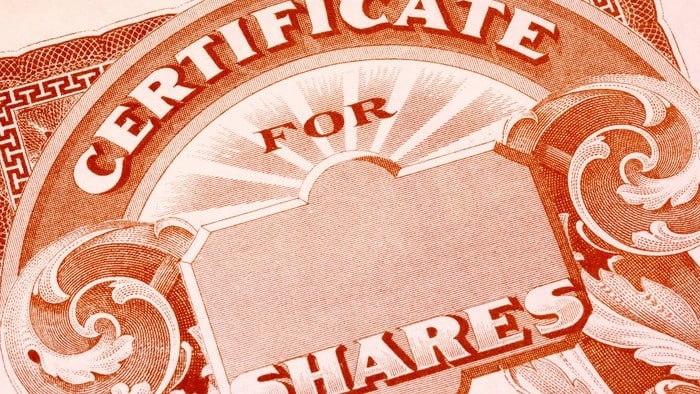This article was originally published on Fool.com. All figures quoted in US dollars unless otherwise stated.
This has been quite the history-making year on Wall Street. In no particular order, we've witnessed:
- The fastest bear market decline from all-time highs in history (a 34% move lower in the S&P 500 in 33 calendar days).
- The greatest snapback rally in stock market history, with the S&P 500 regaining all of its losses from its bear market low in under five months.
- A brief period of negative West Texas Intermediate crude oil prices.
- Apple Inc (NASDAQ: AAPL) becoming the first U.S. company to top the $2 trillion valuation mark.
And at the end of August, we added yet another first to the list: electric vehicle (EV) manufacturer Tesla Inc's (NASDAQ: TSLA) first stock split.
In fact, over the past month, there hasn't been a story that's garnered more attention in the investment community than Apple's and Tesla's respective 4-for-1 and 5-for-1 stock splits, which were both enacted before the market opened on Monday, Aug. 31. That could be because Apple and Tesla have respectively added $653 billion and $187 billion in market value since announcing their stock splits.
Although a stock split has absolutely no bearing on a company's market cap or fundamentals -- i.e., it's entirely cosmetic and designed to raise or lower a company's share price and shares outstanding -- you certainly wouldn't know it by looking at Apple's and Tesla's recent performance.
With these splits now in the rearview mirror, here are four important takeaways that could dictate whether other high-flying stocks follow suit.
1. Stock splits create a strong perception of value
The first lesson we learned from these two stock splits is just how important investor perception can be.
For example, whether you have one share of Tesla at $2,000 or five shares at $400, your total value owned is exactly the same. But psychologically speaking, it's a lot easier for an investor to come to terms with buying additional shares of Tesla stock at $400 than it is to buy a single share of stock at $2,000. It's also easier for an investor to gather $400 in spare cash than it is to build up $2,000 in order to buy a share.
Fractional-share investing has helped combat high-share-price bias. However, not all brokerages allow their users to buy fractional shares, including TD Ameritrade, E*Trade, and Vanguard. Thus, for millions of retail investors, adding to Apple or Tesla to their portfolios just became considerably easier.
2. Having a brand name matters
This might go without saying, but being a brand-name company really helps when it comes to stock split appeal. Apple and Tesla are two of the most recognized brands in the States. Many consumers across the country have forged an emotional attachment with one or both of these brands.
Other public companies enacting forward stock splits during August gained little or no traction. For instance, integrated circuits (IC) manufacturer Power Integrations announced a 2-for-1 stock split on July 30, the same day Apple unveiled its 4-for-1 split. Yet, Power Integrations' stock has declined nearly 10% since its announced split. That's because it's a relatively unknown company with no direct consumer presence. It provides its ICs and electrical components to original equipment manufacturers.
Without a brand name, a stock split is usually a nonevent.
3. Retail investors are almost certainly driving Apple and Tesla higher
We've also learned that retail investors have probably been the driving force behind the hoopla and subsequent moves higher in both companies.
How do we know this? A little more than three weeks ago, money managers with over $100 million in assets under management were required to file Form 13F with the Securities and Exchange Commission. These forms provide an under-the-hood look at what the smartest money managers were up to in the most recent quarter. With regard to Apple, money managers were heading for the exit. The total number of shares held by 13F filers declined by close to 140 million (5.2%) from the sequential first quarter. As for Tesla, the number of shares held by 13F filers did increase, but only by approximately 2 million shares (2%).
Understandably, 13F filings have faults. Namely, we're looking at information that, as of today, is now over two months old. Big money could've played a role in the surges of Apple's and Tesla's share prices that isn't yet known or reflected in these SEC filings. But this 13F data suggests that retail investors are behind Apple's and Tesla's surging valuations.
4. The market can stay irrational longer than you can stay solvent
Last but not least, we've been reminded that irrational stock market or individual equity behavior can have staying power.
Tesla, for instance, was decried as too pricey by its own CEO, Elon Musk, on May 1. Tesla's now split-adjusted price on that day was $140. In four months, Tesla's stock has more than tripled from Musk's personal call on his company's valuation, and it's defied my own repeated arguments that the company is priced for perfection. Tesla was briefly worth more than auto stocks Toyota, Honda, Daimler, Ford, General Motors, Volkswagen, and Ferrari combined, even though Tesla's only producing around 500,000 EVs a year. Emotional investing is driving this short-term rally.
The same can be said for Apple, which is now valued at close to 35 times forward earnings. Apple has hovered between 10 and 20 times forward earnings over the past decade. It's suddenly being valued as a services company despite the fact that its fast-growing services segment was responsible for just 19% of its sales through the first nine months of fiscal 2020.
Neither valuation makes any sense, but both could still head higher.
This article was originally published on Fool.com. All figures quoted in US dollars unless otherwise stated.









